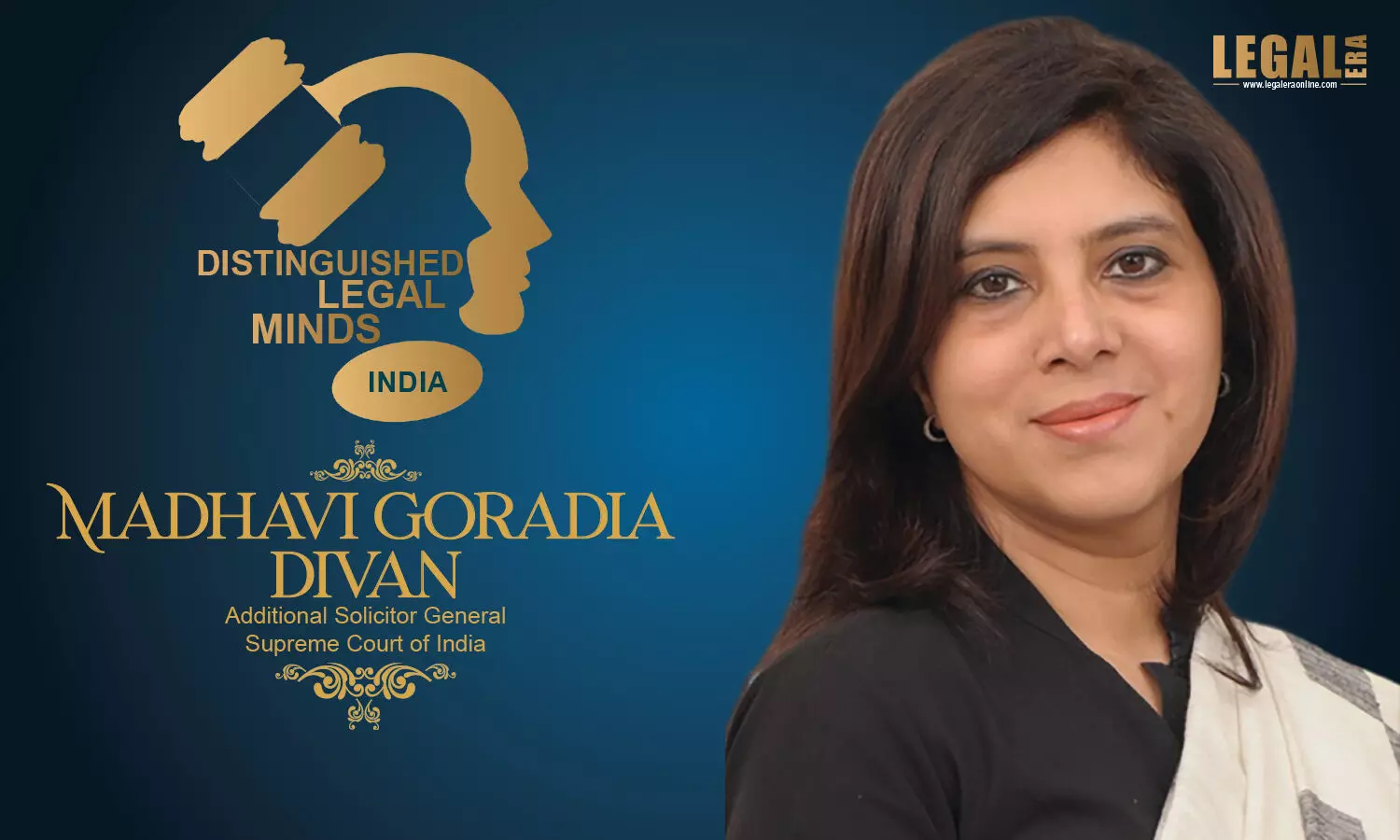
Madhavi Goradia Divan is an Additional Solicitor General in the Supreme Court of India, the youngest woman to have been appointed to the post. Ms Divan commenced practice in the Bombay High Court in 1994, establishing a largely commercial law practice. She moved to the Supreme Court in 2007 where she practised on a range of subjects including constitutional law, media law and environment law. Madhavi Goradia Divan was designated a Senior Advocate by the Supreme Court in 2019. She has represented the Government of India in landmark constitutional cases in the Supreme Court, including the Triple Talaq case, NJAC case on judges’ appointments, and challenges to the Insolvency and Bankruptcy Code. She was entrusted with the task of framing the Government of India’s response to petitions by Muslim women challenging the practice of triple talaq by which a woman could be divorced by her husband instantaneously on the utterance of the word “talaq (divorce)” three times. The case culminated in a landmark judgment titled Shayara Bano versus Union of India, in which a Constitution Bench of the Supreme Court delegitimized triple talaq. Ms Divan has argued free speech and media rights cases before constitution benches of the Supreme Court, notably, in the Sahara media guidelines case, WhatsApp case and more recently in Kaushal Kishore vs. State of U.P. Ms Divan has appeared in a range of corporate and commercial litigation on the original side of the Bombay High Court and Supreme Court of India. She has appeared and argued before several tribunals and fora, including the Telecom Disputes Settlement and Appellate Tribunal, Central Electricity Appellate Tribunal, National Green Tribunal, Press Council, National Company Law Appellate Tribunal, Securities Appellate Tribunal, Airport Appellate Tribunal, Debt Recovery Tribunal and Debt Recovery Appellate Tribunal and National Consumer Disputes Redress Commission. She has also conducted arbitration cases in Mumbai and New Delhi.
Ms Divan is the author of a book on media law titled “Facets of Media Law” published by the Eastern Book Company, now in its second edition. The book is widely used by practitioners and media persons, and is a recommended text book in several law schools across India. She is the co-author of Halsbury’s Laws of India - Environment, 2003, published by Butterworths. She has contributed to the seminal publication, Courts of India - Past to Present. published by the Supreme Court of India in 2016, the section “Famous Trials” which covers landmark trials spanning over two centuries, including the sedition trials of Mahatma Gandhi, the trial of the last Mughal Emperor Bahadur Shah Zafar, the obscenity trial of Lady Chatterley’s Lover, and the 1993 Mumbai series blasts’ case. She has authored the chapter titled “Opening up Appointments: Civil Society Participation in the NJAC” in the book titled Appointment of Judges to the Supreme Court of India published by the Oxford University Press in 2018. She regularly writes for leading law journals and newspapers. She is the editor of The Indian Advocate, a journal published by the Bar Association of India. She has been invited as a Speaker to various lectures, seminars and conferences. She has been a guest lecturer at several law colleges across India. Ms Divan has represented various public causes on a pro bono basis, including the environment, free speech, child rights and rights of the visually challenged. She represented Citi Space, a NGO working to protect public spaces in Mumbal since 1998, in the Bombay High Court and later in the Supreme Court on a pro bono basis. She represented the Bombay Environmental Action Group (BEAG) in the Bombay High Court and Supreme Court in public interest litigation to protect mangroves along the Maharashtra coast. She represented INTACH and public-spirited citizens in a pending public interest litigation to save a public park from appropriation by a private association. She represented the Conservation Action Trust in the National Green Tribunal and the Honorable Supreme Court in a matter concerning the preservation of tiger corridors.
Ms Divan has also worked for Child Rights where she was appointed Amicus Curiae by the Bombay High Court in a case having far reaching ramifications concerning adoption of children by foreign nationals; assisted the Bombay High Court in the preparation of guidelines for the procedure to be followed in adoption matters in order to prevent child abuse and trafficking: advised and appeared for the Child Welfare Committee, a statutory quasi-judicial authority set up under the Juvenile Justice (Care and Protection of Children) Act 2000 for the protection of abandoned children.


